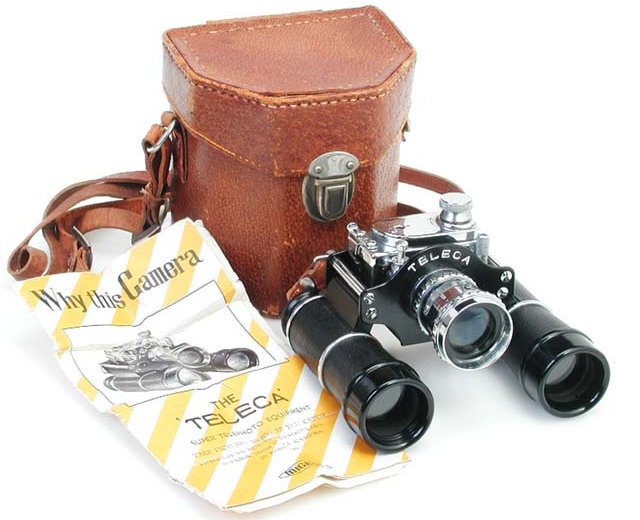Introduction | Cyclops | Teleca
The Cyclops and Teleca binocular cameras where made in the early 1950s by Toko Photo Co, Japan.

This is the original concept binocular camera; the German CamBinox was introduced later, in 1956. This camera uses 16mm film, special cassettes that have an almost square cross section. Image size of 10x14mm. HIT type 17.5mm roll film could also be used. It has an exposure counter.
The subminiature camera is positioned on top and between the opera glasses and has a Tele Sigma 3.5 inches (90mm) (f4.5-16) focusing lens, yields images like a 200mm lens would on a 35mm camera. Shutter speeds of of B, 25, 50, 100. The focal length is given in inches and the distance scale is in feet. The binoculars are individually focusing eyepieces.
Average auction price is in the $500 to $600 range.
The Teleca and Cyclops were not quality picture takers, better than the Binoca, but less than the Cambinox and Nicnon (half frame 35mm).
The Teleca and Cyclops are desired because of the way they look. The glossy black and chrome plated parts hide a camera that is optically and mechanically one of the poorest pieces produced at the time. The Cyclops is the same camera as the Toko Teleca, neither are common, yet are not scarce so the high value given to them at auction is not warranted.
It is said that the Teleca is slightly more rare than the Cyclops, and go for 15% more than the Cyclops.